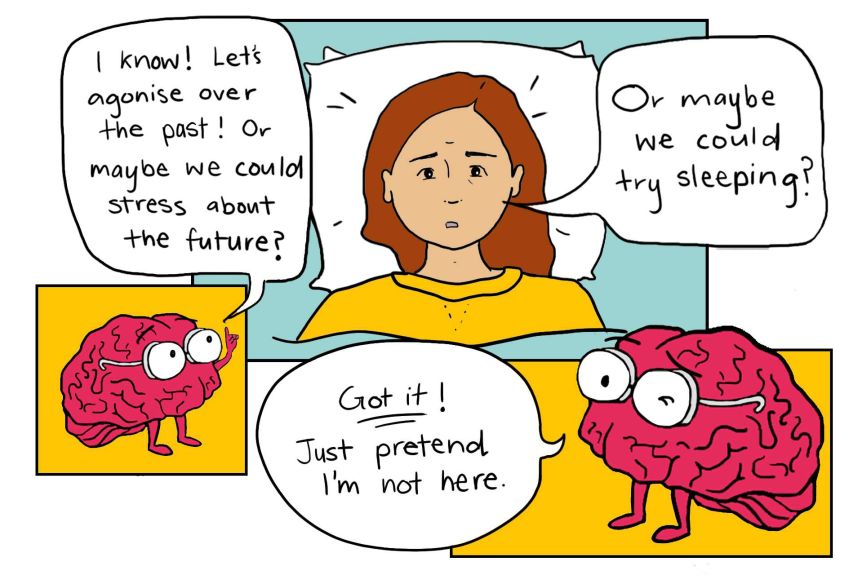
I wish I slept better or more… It’s not uncommon to want more sleep than we actually get. We might go to bed too late, we might struggle to get to sleep, we might wake up in the night and then we might notice our mind going around in circles.
I know that sometimes I definitely get less sleep than I need or want. I get caught up in doing stuff and before I know it it’s 20, 30, or 60 minutes later than my planned bedtime! I notice I’m tired earlier but might have pushed through that wave of tiredness to keep going. This is sometimes called your second wind and has to do with our sleep cycles. A great description of the stages of sleep can he found here.

A sleep cycle is one cycle through the stages; a cycle generally lasts for between 90 and 120 minutes. We all have a circadian rhythm, or internal body clock, that tells us when we are sleepy and need to go to sleep. If we resist the temptation to go to sleep when we are sleepy we might struggle to get to sleep until our circadian rhythm, or other processes in our body, kick in and we feel sleepy again.

Sometimes I struggle to get to sleep, but I have discovered the triggers to my restlessness and sleep difficulty. And because I know the things that might contribute to my sleep onset difficulties and a restless night’s sleep I am able to engage in a number of strategies to manage these difficulties.
These strategies include:
- mindfulness,
- a reduction in caffeine intake,
- trying to keep my wake-up time consistent (even on weekends and holidays),
- reducing the amount of exposure to blue light in the evenings,
- reducing the amount of sugar I consume later in the evenings,
- reducing my alcohol consumption,
- and ensuring I get some exercise most days.
Do you struggle with sleep? Sometimes? Often? What have you tried? Has it helped or not?
You might have been given ALL the advice about how to manage these difficulties. But their effectiveness is a bit hit and miss. This article outlines some of the myths about sleep and managing sleep difficulties. It provides the advice from a selection of sleep experts.
Would you like some help with breaking down your sleep difficulties and applying some of these strategies yourself? You can contact me at Enhance Life Psychology to have a chat about how I might be able to help you.
Sleep myths:Experts debunk common advice for sleep problems
